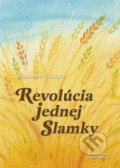Ijeoma comes of age as her nation does. Born before independence, she is eleven when civil war breaks out in the young republic of Nigeria. Sent away to safety, she meets another displaced child and they, star-crossed, fall in love. They are from different ethnic communities. They are also both girls. But when their love is discovered, Ijeoma learns that she will have to hide this part of herself—and there is a cost to living inside a lie.
Inspired by Nigeria's folktales and its war, Chinelo Okparanta shows us, in "graceful and precise" prose (New York Times Book Review), how the struggles and divisions of a nation are inscribed on the souls of its citizens. "Powerful and heartbreaking, Under the Udala Trees is a deeply moving commentary on identity, prejudice, and forbidden love" (BuzzFeed).

















